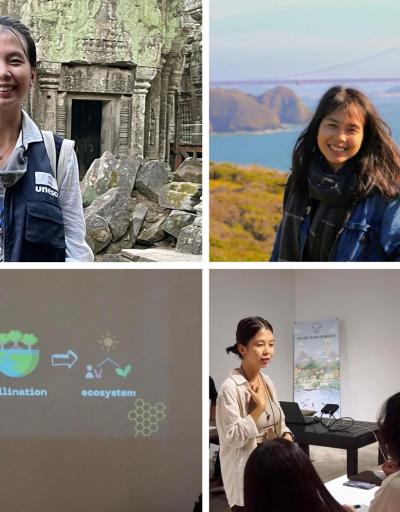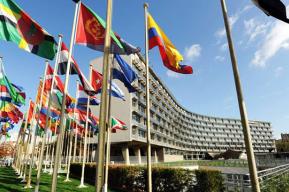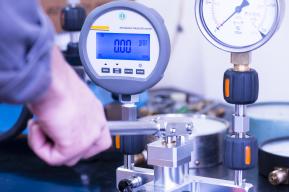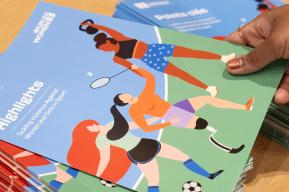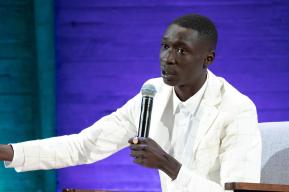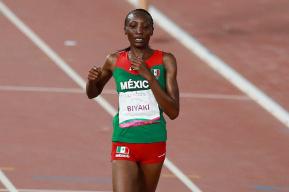Science is many things: a study of natural, physical and social phenomena; a process to test hypotheses and draw conclusions; a journey of discovery to understand the world’s many mysteries. But what science should be is equitable, diverse and inclusive. It should be for all and open to all, especially women.
Globally and in Cambodia, UNESCO works to address these gender stereotypes and prejudices, which are deeply rooted in our societies and prevent women and girls from pursuing in scientific and technological studies.
I was told not to major in STEM-related fields because it will be a difficult path for women.
Since 2021, Ms. Seakguech Sok has been working as an Environmental Analyst with the Natural Sciences Unit of UNESCO Phnom Penh Office, to strengthen the coordination around the Tonle Sap Bioshere Reserve to preserve its resources and promote livelihoods development.
As a graduate from Beloit College, Wisconsin, USA with a Bachelor’s Degree of Science in Environmental Biology, Guech is passionate about conserving native plants and biodiversity in Cambodia. She is also a recipient of the prestigious SHE-CAN scholarship, awarded to young women with promising leadership potential.
I believe there are many women and girls out there who were told the exact same thing because of gender stereotypes in career development. I hope my experience can inspire and encourage more women and girls to take part in the science world.
Empowering women and girls with equal access to training in STEM subjects
UNESCO is working to foster environments that encourage girls and women to study scientific topics, as we believe empowering girls and young women with the same access for training in STEM subjects (science, technology, engineering, and mathematics) is the key to closing the gap on the digital divide.
Sreykhouch is one of the graduates from UNESCO’s Basic Education Equivalency Programme (BEEP) who is now pursuing her technical and vocational certificate in automotive mechanics. Even though she is just one of three female students in her class, she does not let it deter her.
I don't think only men can do this job; women can do this job too. I want to have the same job opportunities as men. We speak and understand the same language as men so both men and women can learn the different parts of a car.
Sopheany Prum is a teacher educator at Preah Vihear Provincial Teacher Training Centre specialising in developing the knowledge and skills of future primary school teachers in science. In 2020, when she first learned about a new Bachelor of Education programme developed with UNESCO’s support, she decided to enrol in the programme so that she can specialise in teaching science and become a better science teacher educator.
I was teaching at a secondary school when the teacher training centre announced that they were recruiting science teacher educators. I decided to apply for the post so I could train future science teachers.
Now, Sopheany specialises in four different science subjects – biology, chemistry, physics and earth science.
Female role models in STEM fields like Sopheany are important for inspiring more women and girls in Cambodia to take part in STEM and reduce the gender gap in STEM careers and education, and supporting the next generation of women engineers, mathematicians and scientists!
Women and girls in STEM research
According to the latest UNESCO Science Report, today, just one in three researchers is a woman.
Dr. Danet Hak (pictured below) holds a PhD in Mechanical and Environmental Informatics and is the Dean of the Faculty of Science and Engineering at Paññāsāstra University of Cambodia. On this International Day of Women and Girls in Science, her message is clear: we must support women and girls to grow in STEM.
Women have an equal right to receive an education and take part in the development of the Nation. Most importantly, every woman has potential to be a leader in science and technology, but for her to be able to unleash her full potential, she needs support from her loved ones, family, friends, and society.
Educating girls and women in science means building a strong foundation in science for the next generation, leading to a brighter future of the Nation.
Dr. Nallis Kry, who holds a PhD in Materials Engineering, is Deputy Director General of the General Department of Science, Technology and Innovation at Cambodia’s Ministry of Industry, Science, Technology & Innovation. The science, technology, engineering, and mathematics (STEM) fields can reach new heights by fostering the increased participation of women like Dr. Kry.
UNESCO seeks to break down stereotypes, by raising awareness of women scientists who are blazing new trails. As role models, they are examples for young women and girls to follow – underlining that they too can achieve excellence. Only by tapping into all sources of knowledge, all sources of talent, can we unlock the full potential of science, and rise to the challenges of our time.


